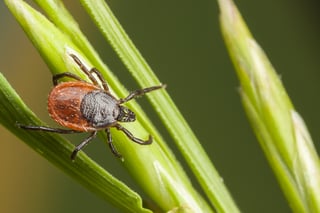National reports link increased mouse activity to Lyme Disease
During the typically cold and dreary month of March, many of us are reaching for milder weather. The thought of spending quality time outdoors in our yards is especially appealing. But this year, being outdoors comes with a warning. Many experts are predicting a major increase in new cases of Lyme Disease in the northeast. This directly impacts the necessity of Massachusetts tick control.
The culprit? Mice. 
As you may know, mice are a prolific transmitter of Lyme. This winter, because our temperatures have stayed on the milder side, mice have been highly prevalent. Just as an example, our operation at Burgess Pest Management has experienced a massive increase this year in rodent calls from homeowners who have never had a mouse infestation before.
According to an NPR report this week, mice infect up to 95 percent of ticks that feed on them. That news does not bode well for humans. Ticks are increasingly active in temperatures above 40 degrees, which increases the likelihood that they'll infiltrate your lawn.
At Burgess Pest, we've already begun treating for ticks this season. We use a 200-gallon hydraulic sprayer to create a residual barrier around the property perimeter. This reduces tick activity on your lawn. But the key is to begin the treatments early in the year and maintain a consistent service frequency. All products break down over time, which means in a matter of weeks, your lawn may be just as vulnerable to tick activity. At Burgess Pest, we generally maintain a service frequency of one treatment every four weeks.

